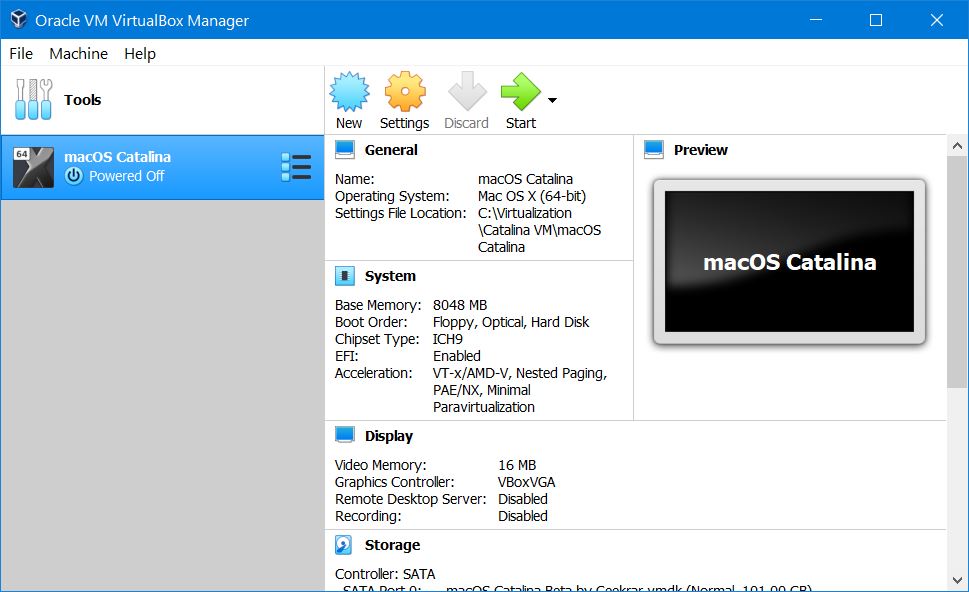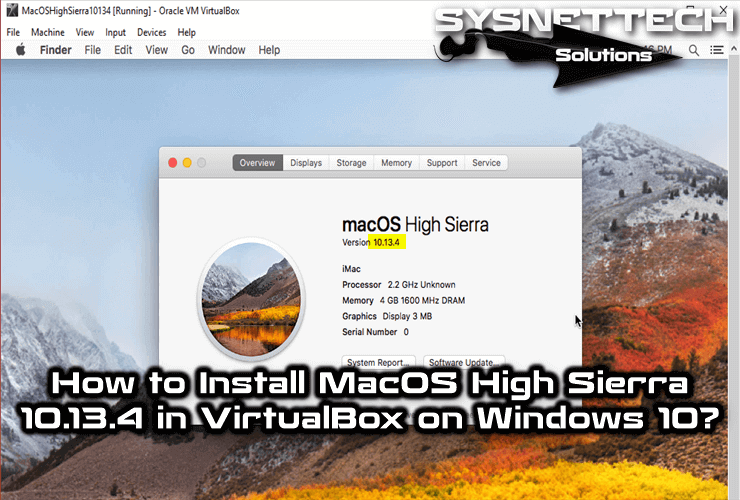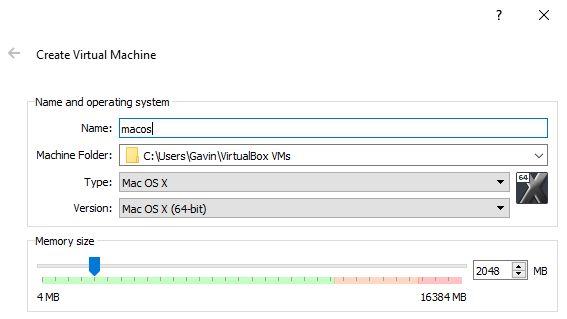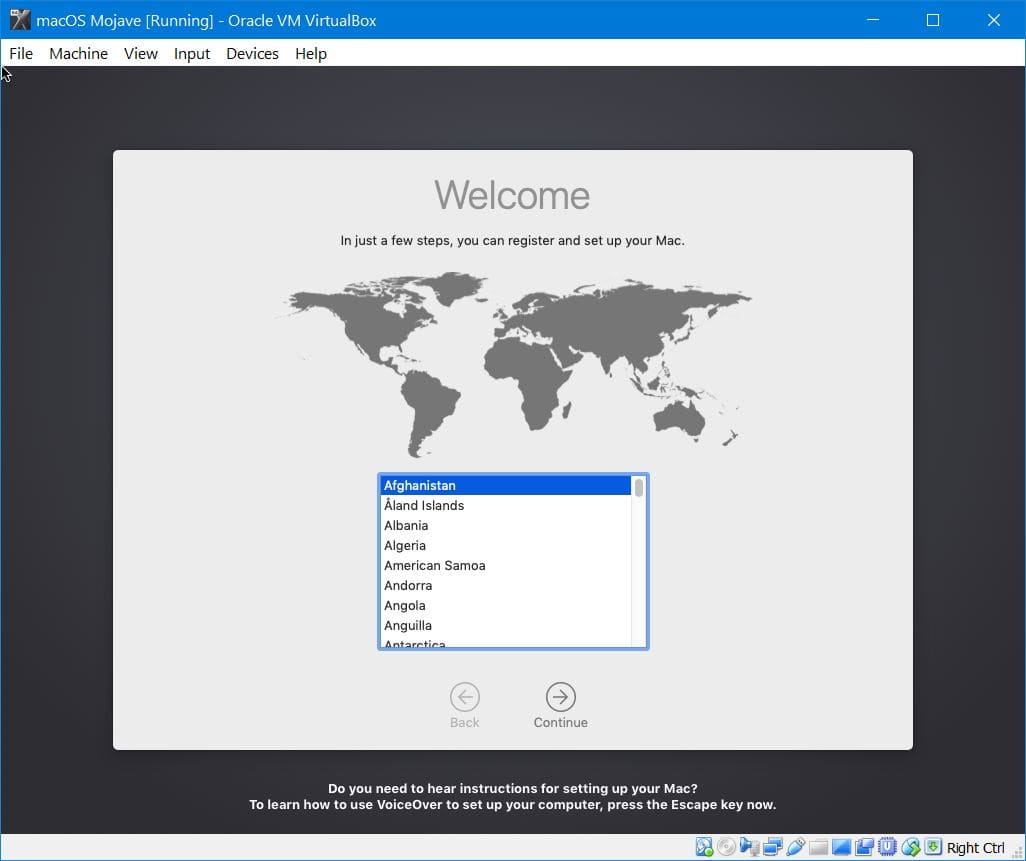For Mac OS X hosts, Oracle VirtualBox ships in a disk image ( dmg ) file. Perform the following steps: Double-click on that file to have its contents mounted.
Currently MacOS X is available to download for everyone, and with it you will obtain a mass of advantages and bonuses, like incredible Aqua interface and unforgettable style and traditions of classical MacOS X design. However, at the moment all the enthusiasts are capable to install and run MacOS X on VirtualBox VM instance, but you’ve got to know, that you will encounter some obstacles and thorns on your way. The main reason is different hardware architecture, PC has a lot of special options and peculiarities comparing to MacOS X platform, and during installation of MacOS in VirtualBox you will tackle with them all. Also no one guarantees that everything would work fine on your VirtualBox instance, without any problems and barriers, so be ready for unexpected surprises and moments.
- First, open VirtualBox and select the newly created install macOS Big Sur virtual machine on the left, then click the ‘Start’ button at the top. Start macOS Big Sur in VirtualBox image 3-b. We will be prompted to ‘Select start-up disk,’ click on the folder icon to the right.
- Virtualbox has the option for a MacOS virtual machine in it’s New VM dialog, but we will need to make further adjustments to make it truly Mac-ready. Pop open Virtualbox, and Create a new Virtual Machine. Name this MacOS Mojave, and set it to Mac OS X (64-bit).
- While you download the VirtualBox, Double click to open the Setup wizard. By pressing three times Next, you will reach to network warning. Now select Yes to ignore network warning. In this step, click on the Install button to install the VirtualBox files.
- Run MacOS Catalina (10.15.13) Guest on VirtualBox. Install MacOS Catalina 10.15.3 with one command: $ make catalina. This project will help you install MacOS Catalina 10.15.3 as a guest on VirtualBox (currently only tested on MacOS). The process will partially-automate the MacOS Catalina 10.15.3 Install and requires some user interaction.
In this article I’m going to tell you how to run Mac OS X on VirtualBox, how to customize it and how to transform the virtual instance into functional representation easily.
The first thing what you should do prior to setting up, is to download the virtual hard disk image with the stored copy of Mac OS X (in this build 10.11 ElCaptain version is installed), so everything that you need is to get the installed copy of HDD, import it into VirtualBox and start using it as if you installed it yourself.
The copy:
https://drive.google.com/drive/folders/0B7cXiM2mdMukRW85U0xxM2FCRFU
So, download the file from the source link and extract the archive to the reliable destination.
Now I will describe the hardware requirements for the MacOS X installation on VirtualBox.
Requirements for the personal computer:
OS: Windows 10/8/7 (64-bit)
CPU: Intel

RAM: 3072 MB (minimal)
BIOS: Virtualization Enable (VT-x)
The next step, which you should perform, is to install VirtualBox.
Further create new VM instance. Here come the parameters: Snow leopard dvd download.
Name: OSX ElCapitan Final
Type: MacOSX

Version: MacOSX 10.11 ElCapitan (64-bit)
Macbooster. Image: OSX ElCapitan Retail.vmdk

When the form with RAM memory definition appears during VirtualBox setting up, set the RAM size to 4 GB (minimum 2.56 GB).
Next step is related to virtual machine configuration. Set up the following settings for exact reproduction of hardware platform and correct VM operation:

Installing Macos On Virtualbox
CPU: 2 CPU and Enable PAE/NX
System: Disable Floppy, Enable EFI, Chipset is IHC9 or PIIX3.
Setup Macos Mojave On Virtualbox
On this iteration the algorithm “How to install Mac OS X on VirtualBox?” is approaching to its conclusion. Using the predefined instruction, you will easily be able to install and run MacOSX 10.11 ElCapitan on your Windows PC platform and VirtualBox appropriately and use it with full comfort and coziness. As far as this instruction is quite detailed and circumstantial, you will not feel any discomfort or confusion while addressing to it. Also we checked the links given in the beginning of the article, and may guarantee that they are all correct and working. Thus, they will serve you well and successfully.
